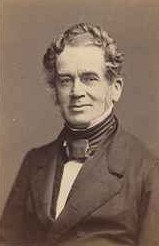
Back فريدريش ادولف ترندلينبورج ARZ فریدریش ادولف ترندلنبورق AZB Friedrich Adolf Trendelenburg Danish Friedrich Adolf Trendelenburg German Friedrich Adolf Trendelenburg Spanish Friedrich Adolf Trendelenburg Estonian فریدریش آدولف ترندلنبرگ Persian Friedrich Adolf Trendelenburg Finnish Friedrich Adolf Trendelenburg French Friedrich Adolf Trendelenburg Italian
Friedrich Adolf Trendelenburg | |
|---|---|
 | |
| Born | 30 November 1802 |
| Died | 24 January 1872 (aged 69) |
| Education | University of Kiel Leipzig University University of Berlin (PhD, 1826) |
| Children | Friedrich |
| Era | 19th-century philosophy |
| Region | Western philosophy |
| School | German idealism Aristotelianism Aristotelian idealism[1] |
| Institutions | University of Berlin |
| Thesis | Platonis de ideis et numeris doctrina ex Aristotele illustrata (On Plato's Doctrine of Ideas and Numbers as Illustrated by Aristotle) (1826) |
| Academic advisors | Karl Leonhard Reinhold[2] August Boeckh[3] Friedrich Schleiermacher[3] Georg Ludwig König |
| Doctoral students | Rudolf Christoph Eucken Friedrich Paulsen |
| Other notable students | Franz Brentano Wilhelm Dilthey Ernst Laas |
Main interests | Logic, metaphysics |
Notable ideas | Trendelenburg's gap, motion as the fundamental fact common to being and thought Putting the organic/teleological view of the world on a modern foundation[4] |
Friedrich Adolf Trendelenburg (/ˈtrɛndələnbɜːrɡ/; German: [ˈtʁɛndələnbʊʁk]; 30 November 1802 – 24 January 1872) was a German philosopher and philologist.
- ^ Steven Rockefeller, John Dewey: Religious Faith and Democratic Humanism, Columbia University Press, 1994, p. 78: "[Morris's] studies with Trendelenburg left him with the lasting conviction that philosophy must be grounded in scientific methods of truth, but Trendelenburg guided him away from British empiricism to an Aristotelian idealism."
- ^ Beiser 2013, p. 17.
- ^ a b Beiser 2013, p. 20.
- ^ Beiser 2013, p. 122.